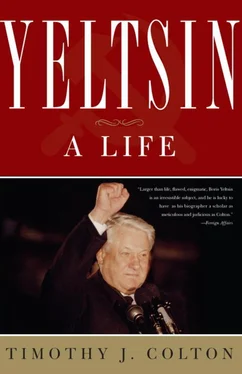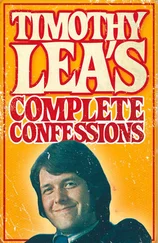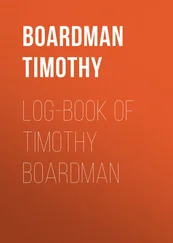Yekim Yeltsin had three sons, and Ignatii Yekimovich Yeltsin, evidently the oldest of them, born in Basmanovo in 1875, was to be Boris Yeltsin’s paternal grandfather. His paternal grandmother, the future Anna Dmitriyevna Yeltsina, was born there in 1877. 15Ignatii’s religious pedigree, it can be established secondhand, was Old Believer. 16The family’s dissidence had dimmed with time, as he was baptized Orthodox and worshiped in the Holy Trinity Orthodox congregation in Basmanovo (some say he was a deacon). But the telltale asceticism and industriousness of the sect endured. Wiry and bearded, Ignatii Yeltsin was a self-made man, a backwoods capitalist who, by Urals and Russian standards, prospered before the 1917 revolution. Shortly after marrying Anna in 1900 or 1901, he built a sizable framed house, trimmed in white, on the left bank of the Belyakovka; it stands to this day, a TV antenna jutting up between it and the toolshed. On twelve hectares (thirty acres) leased from the local land commune, he planted rye, wheat, and fodder. He had about five farmhands and owned a combine harvester, a thresher, five horses, four milk cows, and sheep and goats. In an outbuilding to his house, Ignatii worked as the Basmanovo blacksmith, shoeing horses, forging farm implements, and repairing mechanical equipment. He was also the proprietor of a water-powered flour mill on the Belyakovka and a larger windmill on the brow of the hill above the Yeltsin homestead. He was firm in the belief that, as one of his daughter-in-laws—Boris Yeltsin’s mother—was to put it after his death, good land and good economic results in this world fell to those who earned them: “People who worked lived well. And then there were lazybones and drinkers; they lived poorly.” 17
A half-decade of accumulation was sacrificed to the Bolshevik Revolution of 1917 and Russia’s civil war, when platoons of Red and White troops marauded through Basmanovo and Butka and helped themselves to horses and loot. Admiral Aleksandr Kolchak’s anti-Bolshevik cavalry were driven from the middle Urals in late 1919. The requisitioning of grain by Moscow under War Communism eased off in 1920, although food was in short supply in 1921–22. Resilient Ignatii picked up where he had left off. By terms of the liberalized New Economic Policy enacted by Vladimir Lenin in 1921, which let private entrepreneurs operate in farming, light industry, and commerce, he cultivated twelve acres and rehabilitated the windmill. Doubled over time from four to eight sails, the mill was the only one that peasants for miles around could use to process grain. To minimize envy and taxation, Ignatii Yeltsin relied on family members for manpower and in 1924 divvied up title to many of his assets among his three oldest sons. 18
Nikolai Ignat’evich Yeltsin, the father of Boris Yeltsin, was born in Basmanovo in June 1906. He was the middle of the five offspring Ignatii and Anna produced between 1902 and 1912. From eldest to youngest, the others were Mariya, Ivan, Dmitrii, and Andrian. Nikolai was schooled in reading, writing, and arithmetic for four years—Basmanovo, unlike Butka, had a one-room school—and went into the Yeltsin businesses about 1920. Of the four sons, he and Andrian did carpentry and odd jobs, Ivan worked as a blacksmith with his father, and Dmitrii tended to the windmill on the hill. With an ear for music and a dulcet voice, Nikolai sang in the church choir with his father and brothers and played the harmonica and accordion in the evenings. He appears to have tried to assist with the Communist Party–sponsored government in Basmanovo; according to an autobiographical essay written in the 1950s, he worked from 1924 to 1928 “in an elective post attached to the village soviet [council].” In that same text, he said he “worked as a carpenter in a district workshop” in 1928 and 1929. 19But both these positions, so far as one can tell, were accessorial to his base activity, which was to labor with his father and brothers in the private sector.
In early 1928, bowing to Ignatii’s wish that he terminate a dalliance with a married woman, 20Nikolai wed the nineteen-year-old daughter of a family of lesser means, which had been farming in Basmanovo since the 1670s. The bride’s name was Klavdiya Vasil’evna Starygina. Unschooled, she and her younger sister had been relegated to spinning, sewing, and field chores while waiting for husbands. “My mama would say,” she once told a journalist, “‘For what does a maiden need to be literate? To write letters to boys? She needs to think about getting married.’” 21Klavdiya, who was not much over five feet tall and had braided hair down to her waist, had known Nikolai since age fifteen. When he came courting, they decided to tie the knot immediately, during the Christmas season, and did without a church wedding. She was gladdened to enter the Yeltsin family, with its “golden hands” and property, but her people were not penniless. Vasilii Yegorovich Starygin, her father (born in 1877), was an accomplished carpenter and cabinetmaker who built houses in Basmanovo with the aid of relatives and wage workers; Afanasiya Kirillovna Starygina, her mother (born in 1881), was a needleworker of local acclaim. 22
Nikolai could afford a matrimonial home in Basmanovo, which Klavdiya festooned with tablecloths and other hand-crafted textiles. It was across the lane from Ignatii’s and from the humbler cabin built by Nikolai’s brother Ivan. (Dmitrii’s place was on another street, and Mariya and husband Yakov lived with her in-laws, the Gomzikovs.) Boris Nikolayevich Yeltsin saw the light of day on February 1, 1931—in Butka. Nikolai and Klavdiya’s firstborn was brown-haired and had his mother’s sparkling blue eyes. In the Russian folk calendar, it was the time of the “Epiphany frosts” (kreshchenskiye morozy), the nippiest of the winter. Why a child conceived in Basmanovo was born in Butka—and why in an overcrowded little house, on marshy land on the far side of the Belyakovka from the village green—I shall explain shortly. 23As his mother told him, and as he retold in his first autobiographical volume, Confession on an Assigned Theme, the baby all but drowned at christening when the priest, bibulous on homebrew, let him drop to the bottom of the font. Hearing the gurgles, Klavdiya retrieved him from the water, and the cleric proposed he be named Boris, from the same root etymologically as “struggle” and “fighter” (and also the name of one of Russia’s first two saints and one of its earliest tsars). 24The family domicile in Butka, about fifteen feet by twenty, was filled to the rafters by a ménage of a dozen Yeltsins in three generations, most of whom slept on straw mattresses and overgarments. It still rests crookedly beneath a rusting iron roof at 22 Toilers Street. No plaque or sign immortalizes Yeltsin or his birth. When I ferreted out the house in September 2005, some denizens of the street did not know that the family had ever lived there. 25
At this juncture, the clan’s luck had taken a calamitous turn. In 1928 Stalin and his allies applied pressure on the Soviet peasantry to increase deliveries to government granaries. In 1929–30 they unleashed a social revolution in town and country, swinging from the market-oriented New Economic Policy to breakneck, state-led industrialization. In village Russia, the communists set neighbor against neighbor, divested well-to-do peasants, the kulak s, of their property, and corraled independent growers into kolkhoz es and sovkhoz es, bureaucratized collective and state farms.
Collectivization did not go unopposed. The young Leonid Brezhnev, who was to lead the Soviet Union from 1964 to 1982, worked in the 1920s as a land surveyor and organizer of collective farms in Bisert district, to the west of Sverdlovsk; he became a probationary member of the party there in 1929. In his memoirs, he wrote that irate farmers “railed at us with ropes, pitchforks, malicious notes, and stones heaved through the window”—prompting government agents to “lead the onslaught against the hated kulaks” with ever more fervor. 26It was an unequal contest and one in which, toward the end of 1929, the ruling party pressed its advantage with fury. If 1 percent of peasant households in the unified Urals region were collectivized in May 1928, that ratio went up to 7 percent in October 1929, 19 percent by late November 1929, and 67 percent by March 1930; many of the new collectives fell apart in 1930 and had to be reorganized in 1931 and 1932. 27
Читать дальше












